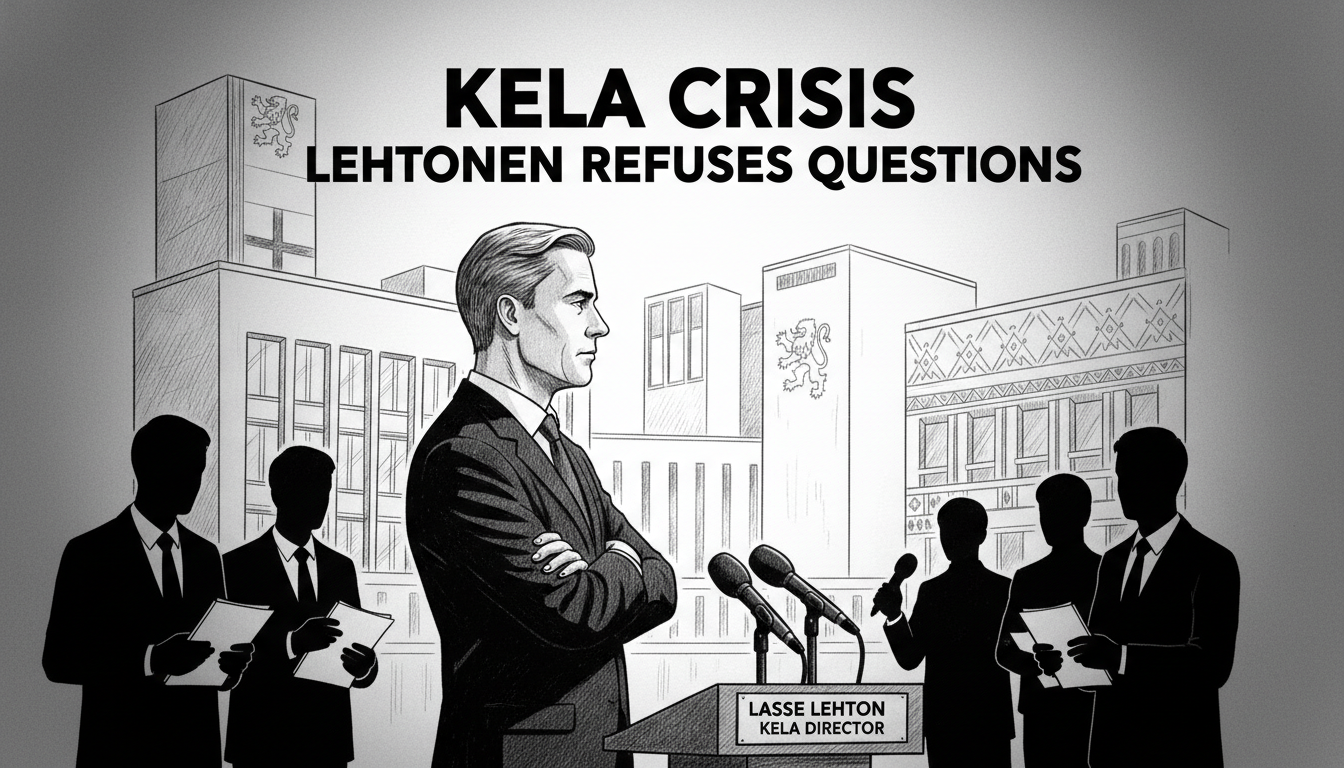The Finnish Social Insurance Institution (Kela) held a press conference on Thursday about its new freedom of choice pilot for 65-year-olds. Director General Lasse Lehtonen faced expected questions about the agency's internal turmoil.
Kela's board convened an emergency meeting on Wednesday evening. They addressed Lehtonen's public comments about staff reductions. After the 90-minute session, Lehtonen apologized to Kela personnel for his poorly worded statements.
During Thursday's briefing, journalists asked Lehtonen about his apology and the internal situation. He repeatedly declined to answer substantive questions.
Reporters asked how he had presented his apology to staff and how they reacted. Lehtonen responded that board chairman Vertti Kiukas would handle all comments on internal matters. He refused to elaborate further despite multiple follow-up questions.
The communications director confirmed Lehtonen's apology appeared on Kela's internal intranet system called Sinet. This internal platform serves as the primary communication channel for the agency's thousands of employees across Finland.
Lehtonen's refusal to discuss staff relations raises concerns about leadership transparency. Public agencies in Finland typically maintain open communication standards, especially during internal crises. The director's stonewalling suggests deeper organizational issues that extend beyond his initial controversial comments.
Kela manages Finland's extensive social security system, handling everything from unemployment benefits to healthcare reimbursements. The agency employs approximately 7,500 people nationwide. Its smooth operation remains crucial for Finnish citizens relying on social safety nets.
This incident reflects broader challenges facing Nordic welfare institutions. Aging populations and budget pressures have forced many social agencies to consider staff reductions. The political sensitivity of these decisions often creates tension between management and employees.
The board's intervention indicates the seriousness of Lehtonen's communication misstep. When a director general requires board supervision for internal communications, it signals significant leadership challenges. The situation may affect public confidence in Finland's social security administration during economically uncertain times.
What happens next remains unclear. The board chairman now handles all internal situation commentary, while Lehtonen focuses on operational matters. This division of responsibilities might continue until stability returns to the organization.
Finnish public sector leaders typically maintain higher visibility during crises. Lehtonen's withdrawal from addressing staff concerns represents an unusual approach for a Nordic agency head. The coming weeks will reveal whether this strategy helps heal internal divisions or deepens them.

